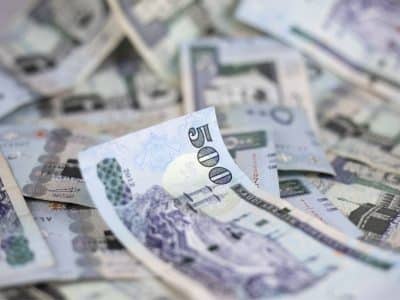The implementation of a five percent value-added tax in Oman this year is expected to bring in OR300 million ($779m), the Oman News Agency has reported, citing the Gulf nation’s finance minister.
Oman’s 2021 budget, announced Friday, forecasts a 14 percent drop in spending and a 19 percent decline in revenue after finances were ravaged by lower crude prices and the coronavirus pandemic. The country last year announced it would impose a five percent VAT in an effort to bolster the economy and curb its widening budget deficit.
The total financial boost from the measures taken in the 2021 budget plan is estimated at OR3.5 billion ($9.1bn).
Of that inflow, proceeds from VAT and excise tax will add about OR413m ($1.1bn) this year, while revenue collected from income tax on companies is seen at OR400m ($1.04bn). Remaining revenue will amount to about OR1.4 billion ($3.6bn).
In the interview Sultan bin Salem Al Habsi, Minister of Finance, also revealed plans to reduce the budget deficit to 1.7 percent of GDP by 2024 and achieve a financial surplus in 2025, which he estimated would be around OR65m ($169m).
The budget announcement showed a 14 percent drop in expenditure from 2020 to OR10.8bn ($28.1bn), while revenue for this year is to fall to OR8.6bn ($22.4bn), a 19 percent decline. The budget deficit is estimated at eight percent of GDP in 2021, or OR2.2bn ($5.7bn).
The sultanate’s economy is estimated to have shrunk 10 percent in 2020, according to projections from the International Monetary Fund (IMF), among the steepest in the Gulf.
Bond spreads in the nation have increased in 2020 compared to neighbours and “while financial buffers remain ample in Kuwait, Qatar, Saudi Arabia and the United Arab Emirates, they are significantly weaker in Bahrain and Oman,” according to a report by the fund.
The largest oil exporter outside of OPEC, Oman has been hammered by the coronavirus pandemic as well as lower crude prices and has raised the possibility of assistance from its Gulf neighbours. The country is rated at junk levels by three of the leading rating firms.
The sovereign has three bonds maturing through 2023. This year, its $1.5 billion issuance matures in June.








